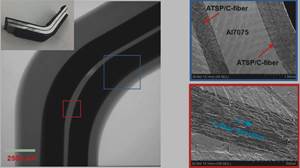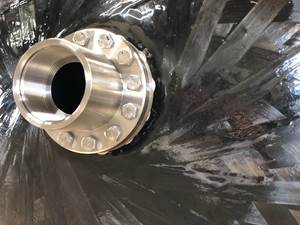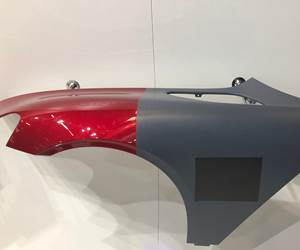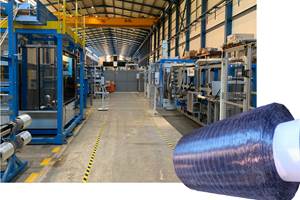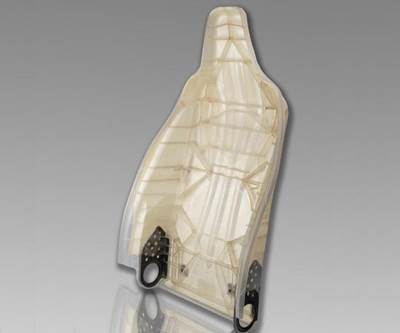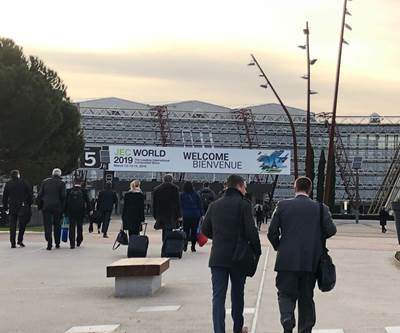Polyscope Polymers wins JEC Innovation Award for thermoplastic composite guide rails
The guide rails, developed for the Renault Scenic and Grand Scenic multipurpose vehicles, comprise glass fiber-reinforced thermoplastics.
Polyscope Polymers B.V. (Geleen, Netherlands) was awarded the JEC Innovation Award in the Automotive Application category. The company’s XIRAN SGH30EB
glass-filled thermoplastic composite was specified by Webasto France and the Groupe Renault (Boulogne-Billancourt, France) for the roller-blind guide rails on the panoramic sunroof modules installed, since 2016, in Renault Scenic and Grand Scenic multipurpose vehicle (MPV) models.
See CW’s article “Thermoplastic composites: Scenic view” for more on the manufacture of the composite guide rails.
According to the company, this is a significant automotive innovation for the industry, being the first time that a thermoplastic composite material has successfully replaced aluminum for this type of sunroof design in a mass produced passenger car.
“We are absolutely delighted and feel very honored to have won this prestigious JEC
Innovation Award. It was a challenging application development for the Polyscope team, but we were fortunate to be working with outstanding, highly technical, design and engineering people in Webasto France and Groupe Renault and the specialist partner companies involved in this project,” says Ferdi Faas, business unit director at Polyscope Polymers B.V.
According to Polyscope, the move from conventional anodized aluminum extruded profiles to thermoplastic composite guide rails freed up 13 millimeters of headspace for passengers and increased the angle of vision through the glass panel (called Daylight Opening). The XIRAN SGH30EB composite guide rails also, the company says, simplified the construction and installation of the sunroof on the Scenic and Grand Scenic vehicle assembly lines. In total, the project reportedly delivered a significant system cost reduction for the installed, improved design, panoramic sunroofs.
XIRAN SGH30EB is a 15-percent glass-reinforced copolymer compound of styrene maleic anhydride and acrylonitrile butadiene styrene (SMA-GF). The formulation was optimized by Polyscope to ensure high bond strength with the polyurethane adhesive used to mount the glass to the module, and the module to the body-inwhite (BIW) roof structure. The material was also said to ensure that dimensionally stable precision parts with a high shot to shot consistency were injection molded, critical for the smooth opening and closing operation of the roller-blind system. The need to use a lubricating grease on the rail guides was also eliminated with the XIRAN SGH30ED material.
This partnership project involved the Polyscope team working closely with automaker Groupe Renault, Tier-1 automotive roof systems market leading manufacturer Webasto SC (Les Châtelliers-Chateaumur, France), along with specialist toolmaker and molder AARK-Shapers (La Séguinière, France). Webasto engineered the injection-molded rails to include a high level of functional integration while simultaneously reducing part count and the number of assembly operations, cutting manufacturing time, cost and complexity. Tooling by AARK-Shapers enabled eight SMA-GF composite parts for the sunroof module to be molded in a family tool that also features modular blocks. This is said to enable both Scenic and Grand Scenic guide rails to be molded in the same tool without using costly tool moving slides or needing additional tools. The asymmetric upper and lower thermoplastic rail sections were injection molded in two pieces and then joined after demolding.
At Renault’s assembly plant, the redesigned sunroof system arrives from Webasto fully
assembled and pretested as a one-piece ready to install unit. The sunroof unit is then
robotically bonded to the vehicle roof, cutting out two-to-three assembly steps, thereby
increasing productivity. In addition to the initial significant cost reduction for installed sunroofs, as the thermoplastic composite module has fewer parts, Renault also expects to benefit from reduced long-term warranty costs, due to lower parts/million (PPM) defects and higher quality since 2016.
According to Polyscope, there is also an environmental benefit for Groupe Renault in switching to a thermoplastic composite for the sunroof guide rails. Like aluminum, the SMA/ABS base resin material is fully recyclable, but uses significantly less energy to produce the rails and to recycle them at end of a vehicle’s life.
This project was one of 11 JEC Innovation Award winners announced at JEC World 2019.
Related Content
New polymer expands composites options in demanding environments
Aromatic thermosetting copolyester offers unique properties, availability in multiple form factors.
Read MoreInfinite Composites: Type V tanks for space, hydrogen, automotive and more
After a decade of proving its linerless, weight-saving composite tanks with NASA and more than 30 aerospace companies, this CryoSphere pioneer is scaling for growth in commercial space and sustainable transportation on Earth.
Read MoreThe state of recycled carbon fiber
As the need for carbon fiber rises, can recycling fill the gap?
Read MoreNovel dry tape for liquid molded composites
MTorres seeks to enable next-gen aircraft and open new markets for composites with low-cost, high-permeability tapes and versatile, high-speed production lines.
Read MoreRead Next
Bio4self bio-based autocomposite wins JEC Innovation Award
The Bio4self consortium has developed a bio-based and easily recyclable composite material. It is suitable for mechanically demanding components in the automotive industry.
Read MoreFirst impressions from JEC World 2019
JEC World 2019, the composites industry trade show, has come to a close. CompositesWorld will be sharing highlights from the event over the next few days.
Read MoreThermoplastic composites: Scenic view
First use of thermoplastic composite guide rails to replace aluminum brings many benefits to fixed-glass, roller-blind sunroof modules.
Read More
.jpg;width=70;height=70;mode=crop)
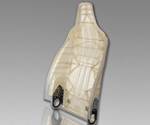
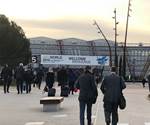







.jpg;maxWidth=300;quality=90)








